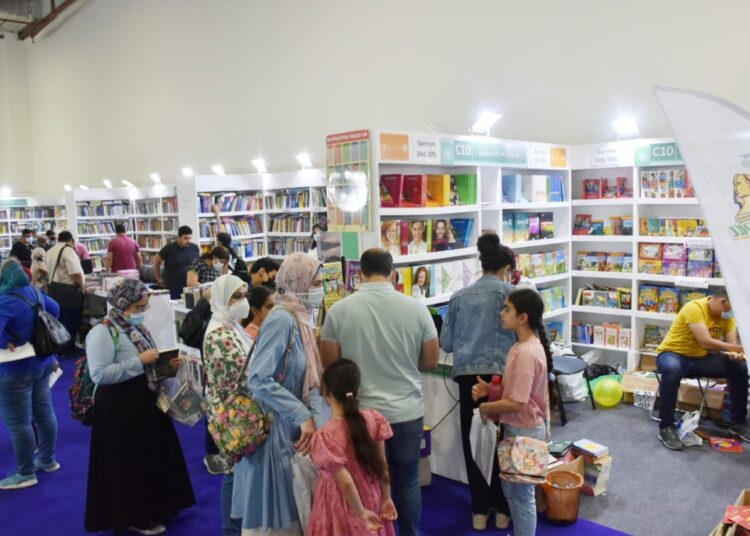Publishers participating in the Cairo International Book Fair, taking place on the outskirts of Cairo now, will allow members of the public to purchase books on account, for the first time.
Book prices are extraordinarily high this year because of the rise in the prices of papers, ink and publishing.
So, the publishers are introducing this book instalmentbuying scheme, for the first time, to prevent the rise in the prices from negatively affecting their sales during the fair.
The move was declared by the Egyptian Publishers Association, the independent union of the nation’s publishers, in mid-January.
It said it would carry out an initiative in this regard in co–operation with Banque Misr, Egypt’s oldest bank.
Book buyers, the association said, would be allowed to pay the prices of the books they buy from the fair throughout a year.
The new book instalment plan, observers say, will rescue the book industry and prop up book sales at this tough time.
The 54th edition of the Cairo International Book Fair, the largest in the Arab region, started on January 25. It will last until February 6.
Book lovers are swarming the different booths of the fair in their tens of thousands every day, creating a turnout unprecedented in the history of this major gathering of publishers, authors and readers.
The fair also encompasses a large number of important events, including seminars, discussion forums, poetry reading sessions and artistic shows.
Banque Misr welcomed the Egyptian Publishers Association‘s initiative. Authors also welcomed the initiative. Author Mohammed Hayat said it would help boost book sales.
“However, the initiative can turn into a double-edged weapon,” he told The Egyptian Gazette.
He expressed fears that book lovers might be discouraged from purchasing the books on account, taking into consideration other financial burdens, with the prices of food and everything else rising.
People, he said, would pay for books in instalments, only if these books are worth this financial burden.
Hayat revealed that some authors choose to be concise, using the smallest number of words for their works, to avoid writing lengthy books that cost publishers a lot.
He is one of those authors. His last book contains fewer pagers than his previous one.
“I always put the purchasing power of readers into account,” Hayat said.
Nevertheless, his last book sold for 85 pounds (roughly $2.8), compared to the previous one which sold for 70 pounds (about $2.3), even as the last book is made up of a smaller number of pages.
The sorry thing still is that rising publishing costs force publishers to abstain from accepting new works, leaving authors in limbo.
According to novelist Ashraf al–Talby, publishers now are in the habit of asking authors to contribute to the cost of publishing.
The instalment plan for books, he said, can solve this problem.
“This plan will also be very useful for researchers and readers,” al-Talby told The Gazette.
He called for intervention by the authorities to supportthe publishing industry by reducing the rents of booths on major occasions like the Cairo Book Fair.
Poet Ahmed Ali Akka believes food and other basic needs will outrival all other needs, including books, for the members of the public.
He attributes the decline in book sales to the internet which made books easier to access by people.
“Counterfeit copies of most books can also be found everywhere,” Akka said. “This is a major challenge for writers and publishers.”






Discussion about this post